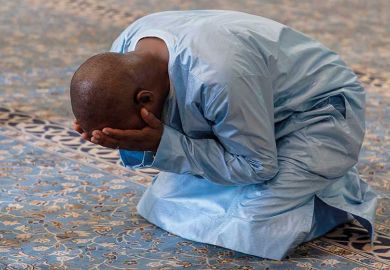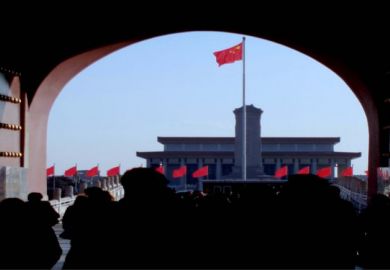Questions relating to the breakdown of sovereignty and the dismantling of artificially created borders have been central to much writing about international relations and geopolitics over the past two to three decades. This has underpinned the renaissance of border studies, which have crossed disciplinary boundaries and become particularly prominent among political geographers and students of geopolitics. Yet this, in turn, has been balanced by the significant reconstruction of borders in the past decade, drawing on events such as 9/11 and governmental decisions to build walls and fences that will guarantee (so they argue) greater security and safety for their citizens.
Ariel Ahram’s Break All the Borders is an attempt to argue for the breakdown of borders in the Middle East as a result of the rise of Islamic State. Drawing on the familiar argument that the artificial borders and state configurations that came into being as a result of the Sykes-Picot and San Remo agreements a century ago have finally broken down, it claims that the Middle East is now being restructured in a fashion that will leave many geopolitical spaces undefined, with the possibility of new borders emerging during the coming years.
Drawing on a series of examples ranging from Cyrenaica to Southern Yemen and from Kurdistan to Islamic State, Ahram discusses the fragmentation of existing regimes and how what was initially called the “Arab spring” has allowed rebel groups in many states to promote separatist and centrifugal developments as an alternative to the “dead states” in which such tendencies were long either suppressed or submerged. Writing in the period 2015-17, he suggests that many of these forms of resistance might create a more stable political order in the Middle East.
While the book sheds much important light on lesser-known countries and groups, the processes that Ahram discusses were still too fresh to enable him to reach firm conclusions about the reshaping of the region. Events of the past year would suggest that, with the ultimate defeat of IS and with the return of state power in the other countries discussed here, the state – however artificial it has been – has reasserted its power, and the borders have remained largely as they were. The international community is in no rush to recognise territorial reconfigurations of the sort that the author believes are taking place, because they seek to stabilise rather than disrupt existing world orders. Local rulers and governments have come to terms with the ethnic abnormalities of the borders created after the First World War and the collapse of the Ottoman Empire, and are happy to be part of the family of states and the realpolitik expressed through international organisations such as the United Nations.
The book demonstrates an in-depth knowledge of the region and separatist cultures. Drawing on a wide range of theoretical literature, along with contemporary sources – many of them in Arabic – Ahram provides an important database and knowledge source for students attempting to unravel the political earthquake that has impacted much of the Middle East. But he would have been better advised to leave many of the questions concerning territorial reshaping open while the conflict and violence was at its peak. Indeed, we are now witnessing what appears to be a reversion to the old order that existed before the outbreak of centrifugal separatist forces.
David Newman is chair of geopolitics at Ben-Gurion University of the Negev, Israel.
Break All the Borders: Separatism and the Reshaping of the Middle East
By Ariel Ahram
Oxford University Press, 280pp, £64.00 and £19.99
ISBN 9780190917371 and 9780190917388
Published 21 February 2019
Register to continue
Why register?
- Registration is free and only takes a moment
- Once registered, you can read 3 articles a month
- Sign up for our newsletter
Subscribe
Or subscribe for unlimited access to:
- Unlimited access to news, views, insights & reviews
- Digital editions
- Digital access to THE’s university and college rankings analysis
Already registered or a current subscriber?








